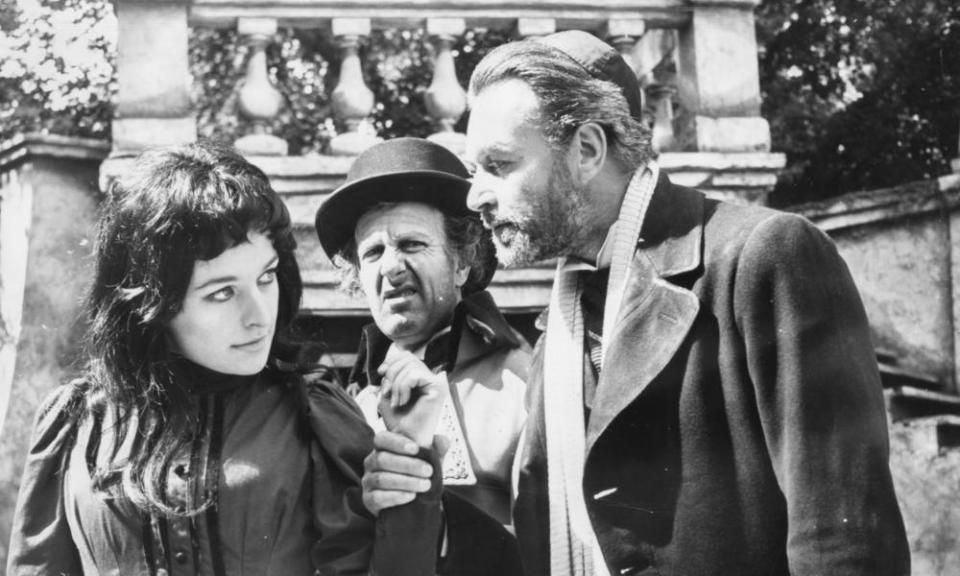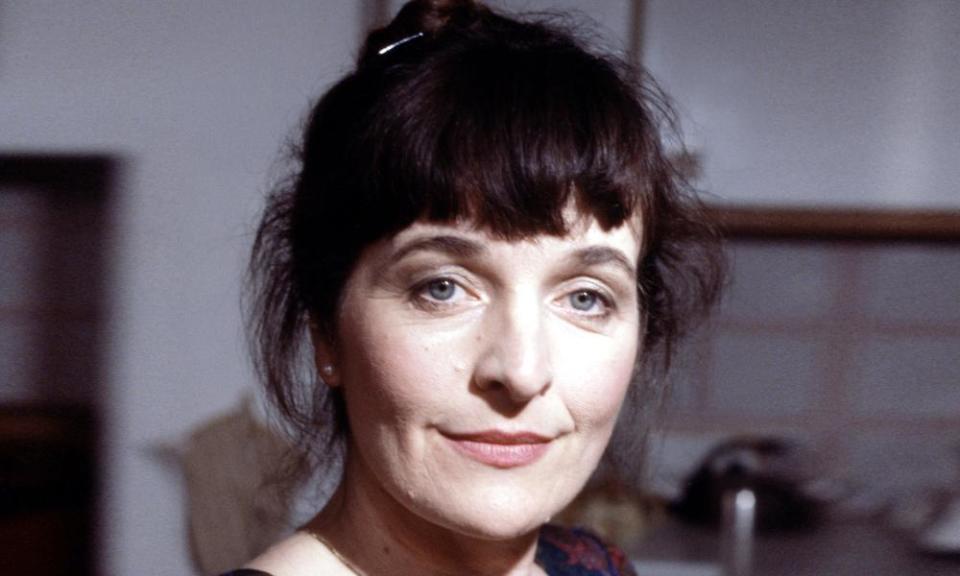Alison Fiske obituary

There was nothing hidden or mysterious about Alison Fiske, who has died of cancer aged 76; as an actor, she was completely transparent, funny and with an armour-plated technique. Some actors are “back-foot” operators, others “front-foot”, and Fiske was certainly in the latter category. There was always an intensity and a momentum to her acting, whether in Shakespeare or Chekhov or indeed new plays.
She won an Olivier award for best actor (in those days, a Society of West End Theatre award) for her 1976 performance at Hampstead theatre in Pam Gems’s Dusa, Fish, Stas and Vi, one of the first mainstream feminist comedies, in which she was Fish, seriously into Rosa Luxemburg – and men. Nancy Meckler’s perfectly cast production placed Fiske alongside Diane Fletcher, Brigit Forsyth and Mary Maddox in a riot of communal camaraderie and liberation.
Fiske became a backbone company member of the National Theatre throughout the 1980s, often appearing in the productions of Michael Rudman, who had gone from Hampstead theatre to run the Lyttelton auditorium as an associate to Peter Hall. Directed by Rudman, she was sumptuous and precise in Somerset Maugham’s great inter-war play For Services Rendered; touchingly and uncharacteristically withdrawn as Frances de la Tour’s widowed sister in Neil Simon’s autobiographical Brighton Beach Memoirs; hilarious, husky and immensely stylish in Arthur Wing Pinero’s The Magistrate.

Another highlight at the National in the 1980s was a revival by Jonathan Lynn of John Cecil Holm and George Abbott’s wisecracking Broadway bar-room comedy Three Men on a Horse. All bets were off on the best comedy award at the Oliviers that year, as no one could think of a funnier play in 1987 than this old nag from 1935. Fiske was bang on self-righteous form as Audrey Trowbridge, sharing the plaudits with Toyah Willcox, Gemma Craven, Desmond Barrit, Ken Stott and Nicholas Le Prevost.
She won awards, too, for her television performance in Helen: A Woman of Today (1973), a series of 13 episodes written by, among others, Andrea Newman and David Turner; she played a cheated wife who rebuilds her life, overcoming all manner of obstacles and frustrations, leading a cast that included Martin Shaw and Sheila Gish.
She enjoyed a few seasons with the Royal Shakespeare Company (she was a tremendous Volumnia to Greg Hicks’s Coriolanus in 2002), appeared in Stephen Daldry’s great production of An Inspector Calls in the West End and as a “superbly disgruntled” (said Michael Billington) Lady Alice More in Robert Bolt’s A Man for All Seasons at Chichester in 2006, again with Shaw, as the husband who cannot open his heart to her, the source of her frustration.
And then, in 2008, she simply retired, hunkering down in the beautiful home she shared with her husband, the writer Stephen Fagan, in Barcombe, East Sussex, walking the South Downs and planning European city holidays, Paris and Rome her favourites. She felt the theatre had changed around her and the work she was offered was not to her liking. So she said goodbye to all that and sold up in London.

Fiske was born in Bedfordshire and raised – the second of five siblings – in south London by her parents, Roger Fiske, a musicologist, and Elizabeth (nee Sadler), who had trained as an actor. She was educated at Letty Littlewood’s dance academy in Wimbledon, south-west London, “crammed” for her A-levels and trained in 1963 at the Central School of Speech and Drama, where she met Stephen.
There was a split at Central, and Alison and Stephen were founder students of the new Drama Centre. At the end of their course, in 1965, they joined Theatre Group 20, which had been formed by an American drama student, Gordon Taylor, and Shivaun O’Casey, daughter of the great Irish playwright Seán O’Casey. Working out of a church hall in Warwick Avenue, they embarked on a four-month tour of American universities with The Beggar’s Opera and some Harold Pinter one-act plays.
“At Harvard,” Fiske wrote, “we danced a tarantella on a stage made from rostra with gaps in between. People missed entrances and the set fell down. There were unforgettable moments, such as when we saw Charlie Mingus bashing the lights out in a New York nightclub because he was annoyed with the manager. As a way of seeing America, it was great. As a way to develop as an actor, I’m not so sure.”
Six months later, they were back in New York, off-Broadway, but were raided mid-performance by immigration officers because they were on the wrong visas. Fingerprints were taken and threats of deportation made. So they returned home that night. Fiske joined the newly founded Everyman theatre in Liverpool and made her television debut in Ken Russell’s BBC Monitor film about Debussy (played by Oliver Reed), co-written by Melvyn Bragg, in which she was Maeterlinck’s girlfriend.
Her first major TV series was Roads to Freedom (1970), a landmark adaptation by David Turner of three Jean-Paul Sartre novels, starring Michael Bryant and Daniel Massey. As well as the obligatory roles in Jane Austen and Charles Dickens – Mrs Price in Mansfield Park, and Rosa Dartle, Mrs Steerforth’s jealous companion, in David Copperfield – she played the vengeful, murderous Hippolita in a notable Roland Joffé production of John Ford’s Jacobean shocker ’Tis Pity She’s a Whore in 1980, filmed on location at Chastleton House, Oxfordshire.
In her debut season with the RSC in 1971 she was Hero in Much Ado About Nothing (Beatrice and Benedick were Elizabeth Spriggs and Derek Godfrey) and Jessica, Shylock’s daughter, in The Merchant of Venice (Emrys James as Shylock, Judi Dench as Portia). Thirty years later, in 2001, she returned to Stratford-upon-Avon as Queen Eleanor to Guy Henry’s King John, directed by Gregory Doran, and a surprisingly original Maria in Twelfth Night.
Fiske is survived by Stephen, whom she married in 1967, their children, Harriet and Tom, and grandchildren, Charlotte and Iris; and by her siblings, Catherine, Veronica, John and Sarah.
• Alison Mary Fiske, actor, born 2 August 1943; died 26 July 2020

